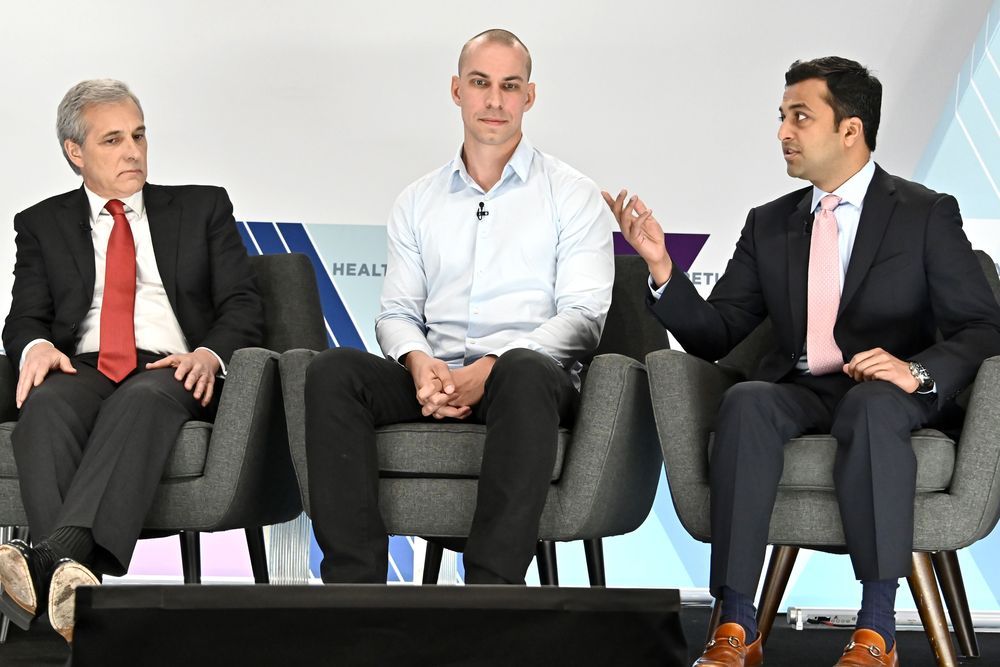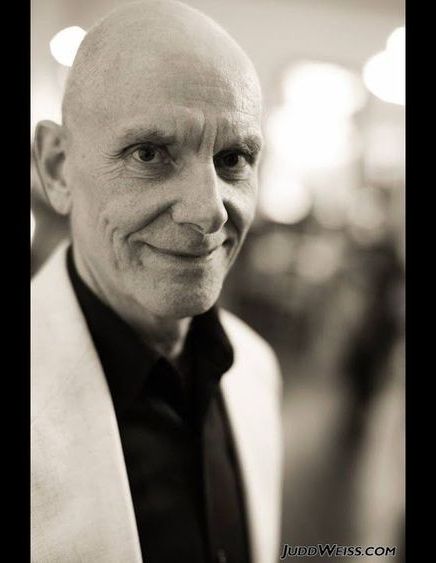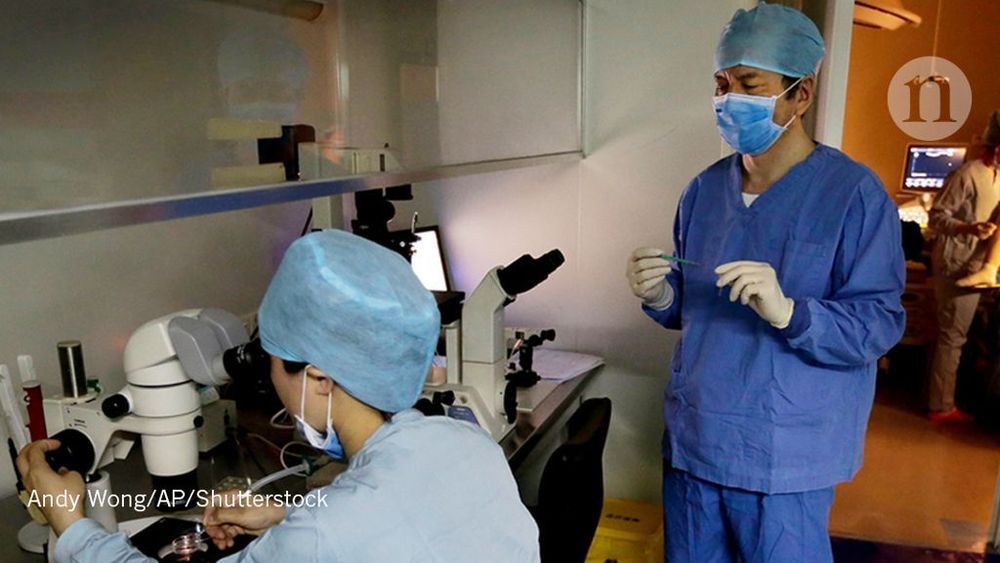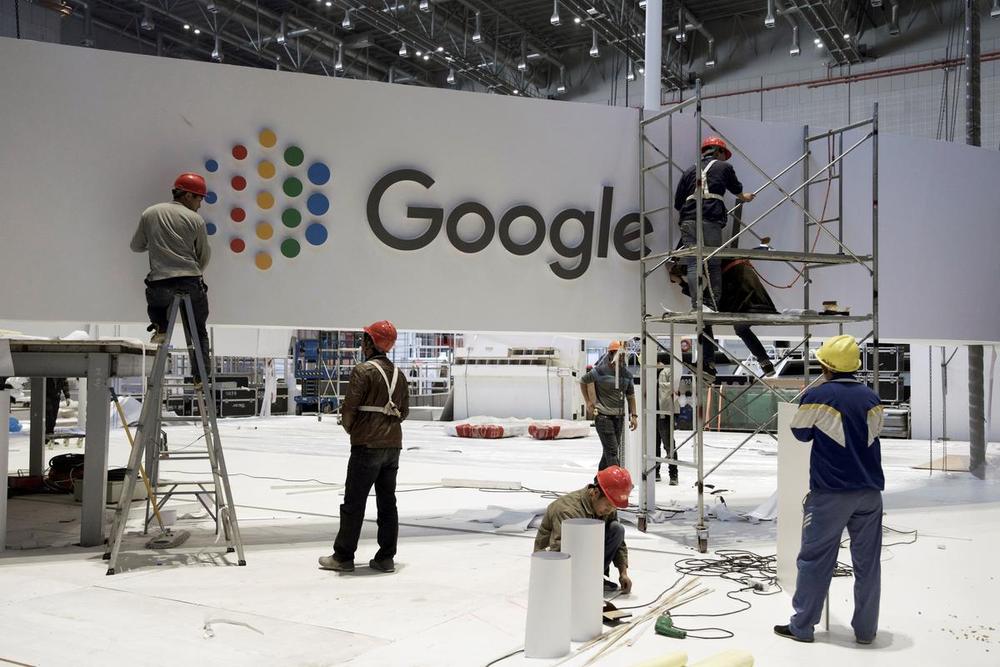The scientific community is now struggling to grapple with the ethics of human germline editing as another woman pregnant with a gene-edited baby is soon due to give birth.



Peter voss is a serial entrepreneur, engineer, inventor and a pioneer in artificial intelligence.
Peter started out in electronics engineering but quickly moved into software. After developing a comprehensive ERP software package, Peter took his first software company from a zero to 400-person IPO in seven years.
Fueled by the fragile nature of software, Peter embarked on a 20-year journey to study intelligence (how it develops in humans, how to measure it, and current AI efforts), and to replicate it in software. His research culminated in the creation of a natural language intelligence engine that can think, learn, and reason — and adapt to and grow with the user. He even coined the term ‘AGI’(Artificial General Intelligence) with fellow luminaries in the space.
Peter founded SmartAction.ai in 2009, which developed the first AGI-based call center automation technology. Now, in his latest venture, Aigo.ai, he is taking that technology a step further with the commercialization of the second generation of his ‘Conversational AI’ technology with a bold mission of providing hyper-intelligent hyper-personal assistants for everyone.
In addition to being an entrepreneur, engineer, inventor, and AI pioneer, Peter often writes and presents on various philosophical topics including rational ethics, free will, and artificial minds; and is deeply involved with futurism and radical life-extension.
Church of Perpetual Life, a science-based church is open to people of all faiths & belief systems. We are non-denominational & non-judgmental and a central gathering place of Transhumans. What unites us is our common faith, belief, and desire in Unlimited Life Spans.

The Vatican is hosting a 2-day conference on the impact of robotics and AI on humanity.
A 2-day conference focusing on the impact of robotics and artificial intelligence on humanity, that began in the Vatican on Thursday, is being organized by the Pontifical Academy of Social Sciences and the Pontifical Academy of Sciences.
By Robin Gomes
“Robotics, artificial intelligence (AI) and humanity: science, ethics, and polic y”, is the theme of a two-day international conference that kicked off in the Vatican on Thursday.

In the months since, China’s scientists and regulators have been going through a period of soul-searching. We, our colleagues and our government agencies, such as the Ministry of Science and Technology and the National Health Commission, have reflected on what the incident says about the culture and regulation of research in China. We’ve also thought about what long-term strategies need to be put in place to strengthen the nation’s governance of science and ethics.
The shocking announcement of genetically modified babies creates an opportunity to overhaul the nation’s science, argue Ruipeng Lei and colleagues.



The companies that are leading research into AI in the US and China, including Google, Amazon, Microsoft, Baidu, SenseTime and Tencent, have taken very different approaches to AI and whether to develop technology that can ultimately be used for military and surveillance purposes.
Companies criticised for overruling and even dissolving ethics boards.

Many researchers see the move to relax the rules as a welcome change, yet some are worried the revisions don’t take public concerns enough into consideration.

Environmentalism and climate change are increasingly being pushed on us everywhere, and I wanted to write the transhumanism and life extension counter argument on why I prefer new technology over nature and sustainability. Here’s my new article:
On a warming planet bearing scars of significant environmental destruction, you’d think one of the 21st Century’s most notable emerging social groups—transhumanists—would be concerned. Many are not. Transhumanists first and foremost want to live indefinitely, and they are outraged at the fact their bodies age and are destined to die. They blame their biological nature, and dream of a day when DNA is replaced with silicon and data.
Their enmity of biology goes further than just their bodies. They see Mother Earth as a hostile space where every living creature—be it a tree, insect, mammal, or virus—is out for itself. Everything is part of the food chain, and subject to natural law: consumption by violent murder in the preponderance of cases. Life is vicious. It makes me think of pet dogs and cats, and how it’s reported they sometimes start eating their owner after they’ve died.
Many transhumanists want to change all this. They want to rid their worlds of biology. They favor concrete, steel, and code. Where once biological evolution was necessary to create primates and then modern humans, conscious and directed evolution has replaced it. Planet Earth doesn’t need iniquitous natural selection. It needs premeditated moral algorithms conceived by logic that do the most good for the largest number of people. This is something that an AI will probably be better at than humans in less than two decade’s time.
Ironically, fighting the makings of utopia is a coup a half century in the making. Starting with the good-intentioned people at Greenpeace in the 1970s but overtaken recently with enviro-socialists who often seem to want to control every aspect of our lives, environmentalism has taken over political and philosophical discourse and direction at the most powerful levels of society. Green believers want to make you think humans are destroying our only home, Planet Earth—and that this terrible action of ours is the most important issue of our time. They have sounded a call to “save the earth” by trying to stomp out capitalism and dramatically downsizing our carbon footprint.

(Reuters) — Alphabet Inc’s Google said on Thursday it was dissolving a council it had formed a week earlier to consider ethical issues around artificial intelligence and other emerging technologies.
The council had run into controversy over two of its members, according to online news portal Vox, which first reported the dissolution of the council.
The council, launched on March 26, was meant to provide recommendations for Google and other companies and researchers working in areas such as facial recognition software, a form of automation that has prompted concerns about racial bias and other limitations.